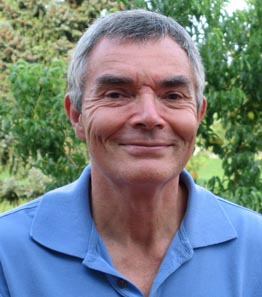
UPDATE (Nov. 9, 2011) — The nutrigenomics seminar at noon, Nov. 9 has been canceled. The talk was to feature Henry Thompson, director of the Cancer Prevention Laboratory at Colorado State University.
_______________________
Prior release (Posted Nov. 8, 2011)
Henry Thompson, director of the Cancer Prevention Laboratory at Colorado State University, will discuss "Defining the Human Health Benefits of Dry Edible Beans" in a noon, Nov. 9 lecture in the East Union's Garden Room. The lecture is free and open to the public.
The lecture is part of the Nebraska Gateway for Nutrigenomics seminar series.
Thompson is a member of the American Association for Cancer Research and the American Society for Nutrition.
Thompson earned his doctorate from Rutgers University in nutritional sciences with an emphasis in biochemistry. He received postdoctoral training at the Mayo Clinic in Rochester, Minn., where he investigated the underlying causes of diabetes.
From 1977 to 1979, he assumed the role of a senior research nutritionist at IIT Research Institute in Chicago. He was trained in experimental carcinogenesis, learning methods for the chemical induction of cancer in five organ sites thus launching his career in cancer research.
From 1980 to 1989, Thompson served on the faculty of the University of New Hampshire and directed the Human Nutrition Center at that institution. Beginning in 1990, Thompson moved his laboratory to Denver, where he was the head of the Center for Nutrition in the Prevention of Disease at AMC Cancer Research Center. In January 2003, Henry joined the faculty of CSU and established the Cancer Prevention Laboratory in the Department of Horticulture and Landscape Architecture.
He formed the new lab based in part on the results of three dietary intervention studies that he conducted in women at high risk for breast cancer. The studies were designed to discover the effects of plant food rich diets on biomarkers for cancer risk.
His current research investigates the human health benefits of staple food crops, primarily dry beans, potato, wheat and rice. He has played a lead role in defining the field of biomedical agriculture and in establishing the "Crops for Health" program at Colorado State.
More details at: http://go.unl.edu/nac